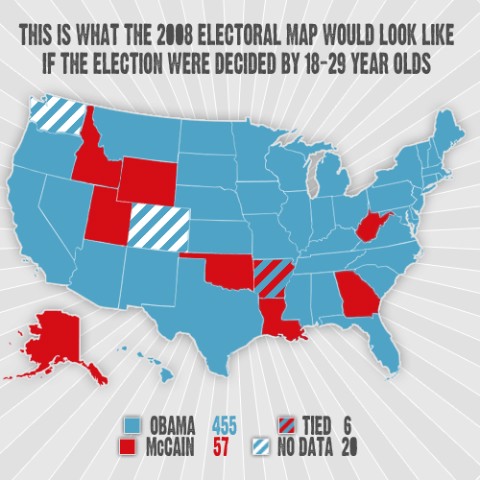

Without doubt the biggest news of this past week is the
election of Senator Barack Obama for the next president of the United States, winning in a sweeping 364 to 173 electoral vote victory over Republican candidate Senator John McCain. This election made history in many ways, and for many, this is at last a change for the better, eight years due. In an era where, at times, it seems as if it is the US against the World, with international relations souring across the board and overall international criticism of American government and society on the rise, I was curious to see the global reaction to Obama’s election.
My first stop was the Time article
The World's View of Obama's Win, which had perspectives written from eleven different countries. I’d highly suggest you read it, but in any case, here are the some key points that I have selected from each nation:
Malaysia: “In Obama's victory are sown the seeds of great expectations that a truly new chapter will be written in the history of the world.… Muslim nations will have cause to celebrate this triumph; it offers prospects for genuine dialogue and engagement and should witness the politics of diplomacy supplant the politics of war and the theology of terror.”
Hmmmm…. Muslim nations huh? Diplomacy to supplant war? It seems as if this could be a change for the better. Czech Republic: “I am more glad that Barack Obama won… he will be a President of a new generation — a new type, with a great understanding of the multicultural nature of the contemporary world.”
France: “Anti-Americanism will not disappear as though by magic, but its life will get harder.”
Thanks France.
South Africa: “Obama's election has given hope to people everywhere that change is possible, that this debilitating status quo of a polarized world of "them" and "us" can change…. Today, those who want to end the scourges of poverty, disease and ignorance, those who want to promote justice, peace and greater tolerance among different faiths are celebrating because Barack Obama is the new President of the United States.”
Spain: “In this complex period our world is facing, Barack Obama's election has kindled a feeling of hope, one that most Spanish citizens and Europeans share, and one that reflects a shared confidence in the real capacity to build a better world.”
India: “The most important thing that Barack Obama brings to the presidency is his willingness to reason.” (
and I must add: “Spreading the wealth a bit in a deeply unequal society is not as offensive to reason as it appeared to Joe the noncertified Plumber.”)
A president who thinks?Britain: “Our highest priority must be to meet the current challenges in the global economy, building a stable and effective international financial system and addressing the threat of climate change.”
Kenya: “I believe Mr. Obama exhibits many of the best characteristics of our species in terms of intelligence, sensitivity, resolve and a willingness to reason…. We all require a President who will remain calm, focused and hopeful. Well done, America; your democracy has delivered.”
(Obama’s father is Kenyan)Germany: “Bush is a one-man axis of evil, and Obama the redeemer: "Deliver us, for thine is the kingdom …. But politics is not about redemption…. Will the Euroswooners still love Obama when he presses them for more troops in Afghanistan and real sanctions on Iran?”
Excellent point, Germany. We will see.Egypt: “The President-elect is an African-American Christian with a Muslim father who lived across many continents and came from humble beginnings. This sends a powerful message to the rest of the world about the need for diversity and building bridges, values that are at the core of any efforts to create a world at peace with itself.”
Singapore: “Obama's election will significantly reduce anti-Americanism…. It will make a huge dent in the strong silent prejudice against blacks in many societies… if we can reduce this deep ethnic prejudice, we may have hope for other ethnic divides… between Israelis and Palestinians, or Tamils and Sinhalese. If we can finally focus on our common humanity, we have a real opportunity to create a better world.”
Wow, so on the whole some very
positive reactions. I supposed I shouldn’t be too surprised however, at least based on a poll from the website
iftheworldcouldvote.com. According to these polls, only two countries were red (as in for McCain, not as in communist): Macedonia and Albania (okay, and Niue if you count its one vote). Don’t ask me why. The entire rest of the world were all “blue states.”(Some notable statistics: Afghanistan 79.2% in favor of Obama, Canada 89.2% in favor, China 88.1%, France 94.5%, Germany 92.5%, India 86.8%, Iran 80.7%, Iraq 71.4%, Japan 88.4%, Mexico 87.7%, Russia 88.1%, Sudan 92.7%, UK 92.9%) In an era where international relationships are, quite frankly, unavoidable, I believe these polls show that perhaps America has made a wise choice. However, I am curious as to whether the majority of these feelings are based on Obama’s actual proposed policy, or perhaps rather his slogan of “Change”, sometime I feel the entire world would agree we need. In the end, only time will tell.
God Bless America. 

















